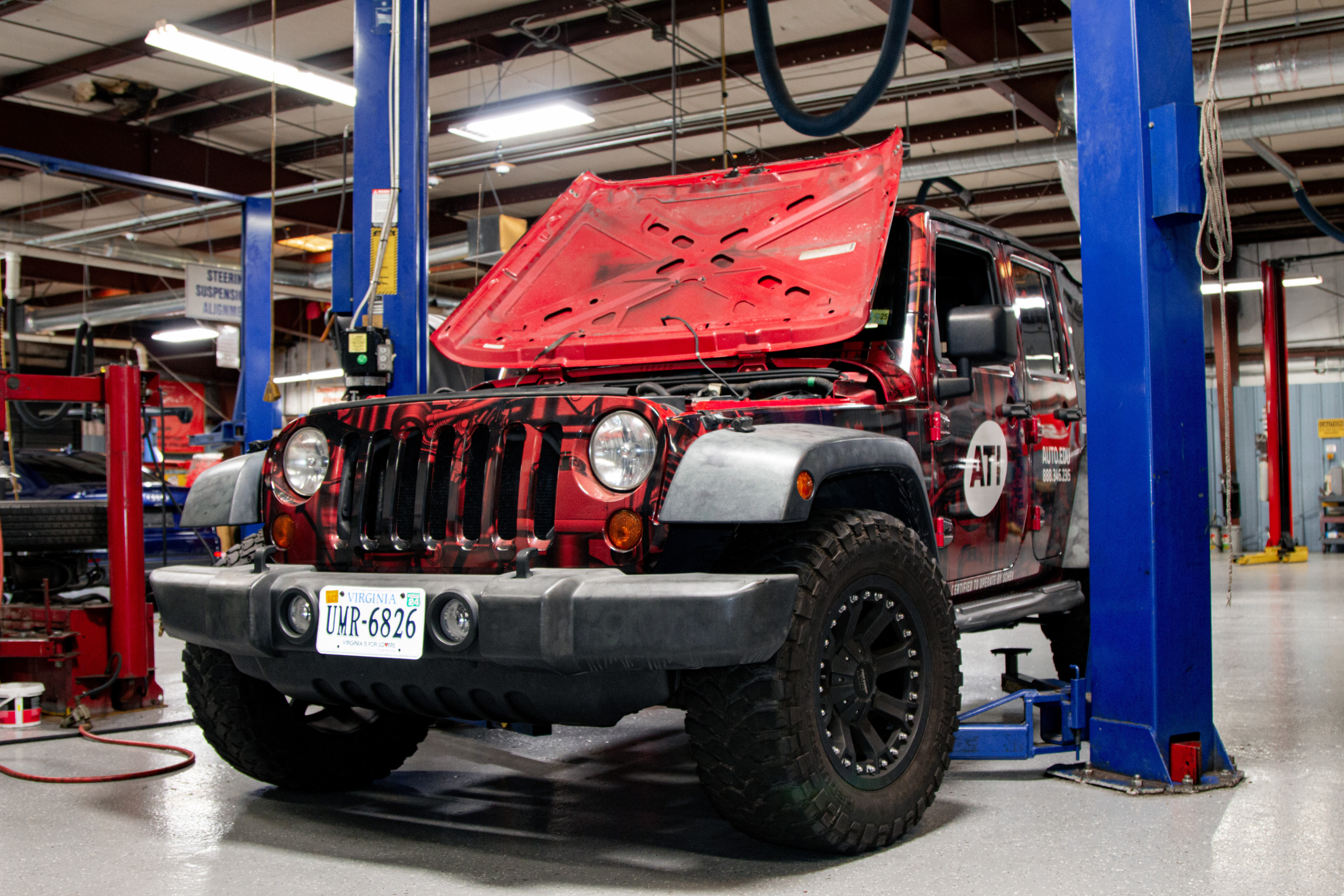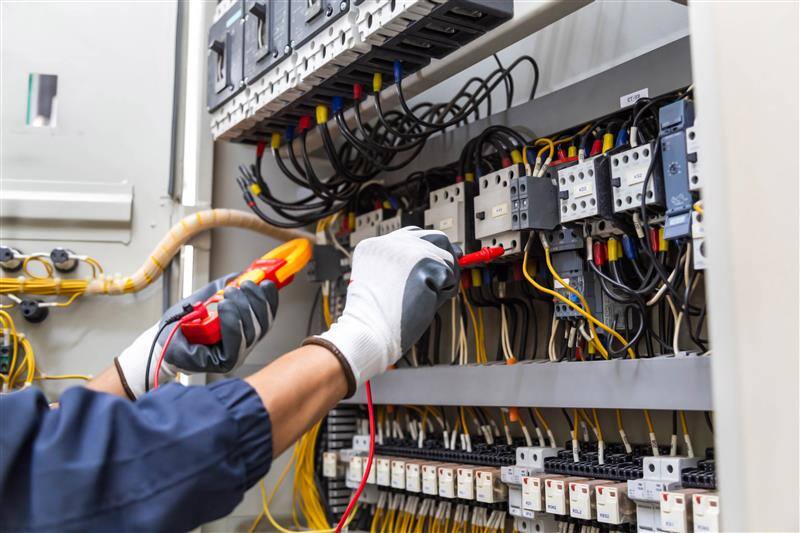Trade careers have always been the backbone of society, quietly powering our homes, roads, cars, and comfort systems behind the scenes. If you enjoy building things, working with tools, solving real-world problems, or seeing the results of your effort take shape before your eyes, learning a trade might be the perfect path.
Unlike traditional college routes, trade schools focus on specialized, hands-on skills that can be learned in a shorter time frame. But here’s the truth: there’s no single “best” trade to learn. What’s best depends on you—your interests, aptitudes, and what kind of workday you envision.
In this guide, we’ll walk through some of the most respected and rewarding trades you can learn, from welding and HVAC to automotive and electrical work. Think of this as your starting point to discovering the path that feels like a fit.
Quick Links
-
Welding School: Crafting Strength, One Spark at a Time
-
HVAC School: Mastering the Science of Comfort
-
Mechanic School: Turning Wrenches and Solving Automotive Puzzles
-
Electrician School: Powering the Systems That Power Everything Else
-
Beyond the Big Four: Other Trades to Explore
Welding School: Crafting Strength, One Spark at a Time
What Is Welding and Why Is It Important?
Welding is more than just fusing metal together—it's about building things that last. From bridges and buildings to pipelines and aircraft, welding plays a crucial role in almost every industry that uses metal.
What Is Learned in Welding School?
In welding school, students dive into different types of welding methods like MIG, TIG, stick, and flux-cored arc welding. You’ll also study how to read blueprints, understand metal properties, and apply safety procedures. The learning is hands-on, often in fully equipped welding labs that simulate real job settings.
Pros and Cons of Welding
Pros:
- Suits people who like working with their hands and creating physical, lasting results
- Offers variety—construction sites, factories, shipyards, and artistic welding
- Encourages craftsmanship, precision, and patience
Cons:
- Physically demanding; requires stamina and attention to detail
- Involves heat, sparks, and gear for protection
HVAC School: Mastering the Science of Comfort
What Is HVAC and Why Is It Important?
HVAC - Heating, Ventilation, and Air Conditioning - might not sound glamorous, but it’s behind every warm winter home and cool summer office. HVAC systems control not only temperature but also air quality and humidity, making indoor environments safe and comfortable.
What Is Learned in HVAC School?
HVAC school teaches the science behind climate control. Students learn refrigeration cycles, system design, ductwork, wiring, thermostat control, and troubleshooting techniques. Training usually includes working directly with HVAC units, electrical components, and diagnostic tools.
Pros and Cons of HVAC School
Pros:
- Combines mechanical and electrical skills
- Involves diagnostic work, repairs, and installations—no two days are the same
- Opportunities to specialize in energy-efficient and smart home systems
Cons:
- Often includes outdoor or attic work, sometimes in extreme temperatures
- May require flexible hours during peak heating or cooling seasons

Mechanic School: Turning Wrenches and Solving Automotive Puzzles
What Do Mechanics Do and Why Is It Important?
Every vehicle on the road depends on mechanics for maintenance, performance, and safety. Whether it’s a family sedan or a delivery truck, someone needs to diagnose problems, make repairs, and keep the wheels turning.
What Is Learned in Mechanic School?
Mechanic school trains students to understand and repair key automotive systems: engines, brakes, transmissions, electrical circuits, suspension, and emissions. You’ll also learn how to use computerized diagnostic tools and service manuals, along with safety practices and workshop management.
Pros and Cons of Mechanic School
Pros:
- Appeals to those who enjoy figuring out how things work
- Strong blend of technology and manual skill
- A fast-paced environment with visible, immediate results
Cons:
- Requires physical work, including lifting and crawling under vehicles
- Can be messy—grease, oil, and dirt are part of the job
Electrician School: Powering the Systems That Power Everything Else
What Do Electricians Do and Why Is It Important?
Every building, home, and piece of equipment that runs on electricity needs an electrician somewhere in the background. Electricians design, install, and maintain wiring systems that light up rooms, charge devices, and keep machines running.
What Is Learned in Electrician School?
Electrician training starts with learning electrical theory and safety. Students move on to topics like circuit design, conduit bending, panel wiring, and using meters or testers. Programs often include mock jobsite setups where you’ll install fixtures, run wires, and troubleshoot problems.
Pros and Cons of Electrician School
Pros:
- Excellent for those who enjoy logic, systems, and technical problem-solving
- Opportunities to specialize in residential, commercial, or industrial sectors
- Develops both theoretical and practical skills
Cons:
- Requires precision and consistent focus on safety
- May involve working in tight spaces, basements, or rooftops
Beyond the Big Four: Other Trades to Explore
Welding, HVAC, electrical, and auto mechanics are some of the most widely recognized trade paths—but they’re far from the only ones. If you're curious about alternative hands-on careers, consider:
- Plumbing – Specializing in water systems, drainage, and piping installations
- Carpentry – Working with wood to build frames, furniture, or cabinetry
- Machining – Operating lathes and mills to shape metal parts with extreme accuracy
- Electronics repair – Fixing circuit boards and electrical devices
- Mechatronics – A blend of mechanical, electrical, and computer systems
The key is to match your natural strengths and interests with a trade that aligns. Some people love solving technical puzzles. Others enjoy using their hands to create or repair. Others may seek roles that offer variety or constant learning. Each trade offers a different kind of rhythm, challenge, and reward.
How to Choose the Best Trade for You
Choosing a trade is personal. You might start by asking:
- Do I enjoy working indoors or outdoors?
- Do I prefer detailed work or large-scale projects?
- Am I more drawn to mechanics, electricity, climate systems, or fabrication?
- Do I like solving problems, building things, or working with machines?
The best trade to learn is the one that energizes you and offers a sense of purpose. Take time to explore, ask questions, and even visit trade schools or training programs to see the work in action. Many schools offer short discovery sessions or allow you to talk with instructors to get a feel for the field.
Final Thoughts
Learning a trade isn’t just about gaining a skill; it’s about developing a craft. Whether you find satisfaction in shaping metal, fixing engines, installing circuits, or creating climate-controlled environments, there's a trade out there waiting for your unique strengths.
It’s not about choosing the “best” trade in general—it’s about finding the best trade for you. One that fits your goals, your lifestyle, and how you want to spend your day.
To learn more about ATI programs, visit here.
Industry Knowledge
Welcome to the Advanced Technology Institute's Blog, your resource for industry insights and discussions on technologies shaping the future of automotive, heavy vehicle, hvac, welding, and other related career paths.
Explore how ATI's curriculum and hands-on learning opportunities can propel your career in the tech-driven world.



.jpg)